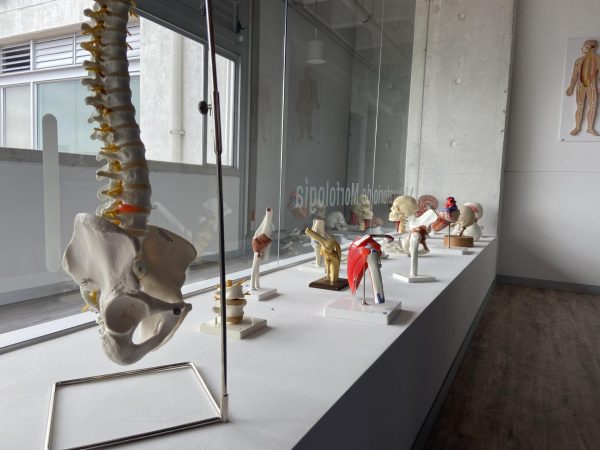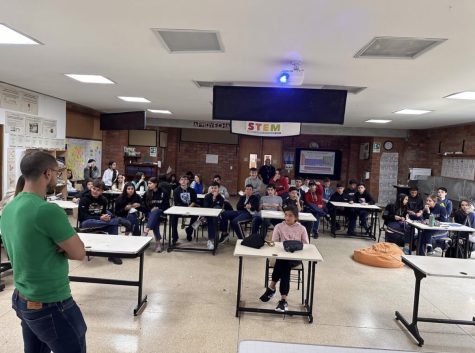Pass By Catastrophe: Fact or Fiction?
Two weeks before the AP Chemistry exam, all the AP students sit quietly in a classroom trying to study their way to a passing grade. Suddenly, a voice breaks the silence, “Hey guys, I heard that if someone dies during the AP exam, everyone present gets a five,” Jazmin Martin Vera says, “So who’s going to take one for the team?”
Some might consider this cruel, but Jazmin is not alone. She is one of the hundreds of high school students who have heard at some point in their lives that if a student dies while taking an Advanced Placement exam, all the other students present automatically get fives, the highest grade possible.
There are hundreds of short stories have been written and youtube videos online that depict this event in many different ways, ranging from accidental bee stings to suicides. However, there is not a single testimony from people who claim to actually having witnessed that these events.
In fact, popular information sources such as Wikipedia and Quora claim that this rumor is just a legend. The websites explained that although the school would allow for a retaking of an exam and be more lenient towards the students who experienced the incident, there is no general rule that states that all other students present would get a top grade. According to the Wikipedia website, a slight score adjustment would be in order.
Educators at The Columbus School have also heard of this, however, they do not believe it is true. William Beauchamp, AP Biology teacher for 11th and 12th graders, doesn’t see the connection between somebody dying and everybody else getting a five.
Some students, on the other hand, feel quite differently. Jazmin Martin Vera, a TCS 11th grader taking both the AP Chemistry and the Biology tests says that this measure is not only good, but necessary.
“Someone dying would be a very traumatic event that would most likely scar me for life. Retaking the exam or any other such measure would just remind me of this scarring instance, so my actual knowledge on the subject could never, accurately, be tested.” Martin Vera explained.
However, the final word in this matter is held by the college board. According to the Bulletin for AP Students and Parents provided by the College Board, “Testing Irregularities” are handled on a case by case basis. Testing irregularities are defined as problems with the administration of an exam affecting an individual or a group of test-takers, which is a category that most likely includes the death of another student, as this specific event is not mentioned explicitly in the bulletin.
Once the College Board is notified of the disturbance, they are responsible for analysing the discrepancy. After this, they may decline to score the tests of students who they consider may have benefited from the irregularity, or allow them retake the test free of cost at another time, if they consider this to be appropriate.
There are many other urban legends surrounding academia, many of them involving death. For example, in colleges around the US, it is a widespread belief that if a person’s roommate kills themselves, the survivor must receive top grades for the remainder of the semester. This rumor, as the vast majority of them, is completely unfounded, yet many people wish it to be true.
The origins of these rumors seem to go back to the 1970s, when AP courses started to become commonplace at educational facilities. However, many movies, such as The Curve(1998) and Dead Man on Campus(1998) seem to have perpetuated this rumor, as they made “pass by catastrophe” the basis of their plot.
The most concerning part of this phenomenon to many people is the enduring popularity of these rumors. Most of the questions posted on forum sites were from people hoping that the rumors were true, and the short stories often portrayed the person who died during the test as a hero.
These opinions expose just how highly grades are valued in the modern schooling system. So highly, that for some people, grades are valued above the lives of their classmates. “These urban legends show a negative aspect of humanity, and they worry me as they show that students are starting to value their grades more than their health and their classmates’ lives. It leaves a lot to be desired from the modern educational system.”Elaborated Susana Mejía, TCS 11th grader taking AP Physics and Calculus.
























